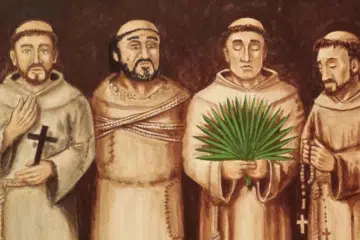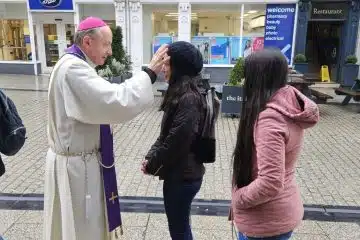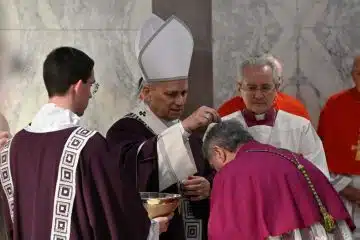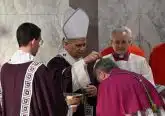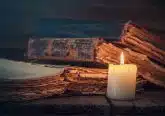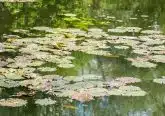The Catholic Moment: Our intellectual tradition
April 21, 2011
By Michael Daley
Visiting my brother in North Carolina, my niece came out of a farmer’s market carrying some calypso beans. She generously offered them to her relatives, and we were struck by the various black and white patterns (very similar to yin and yang) on them.
“How’d they get that way?” my niece asked her mother.
“God made them that way,” was the reply.
Playing the devil’s advocate, I responded, “They evolved.”
To this, I was asked, “You don’t believe that now do you, Mike?”
“Yes, I do,” I offered.
“Well, it would take more than a weekend to speak to that,” she said.
“It would take billions and billions of years,” I answered.
Though I didn’t realize it at the time, the two of us were entering into the heart of the Catholic intellectual tradition. At the center of it is a most significant question: Are faith and reason (science) contradictory or complementary?
Given the plural and dynamic cultural context from which it emerged, rather than build a wall around itself, the early Christian faith community began a conversation — a search for the truth — with the world. It’s one that has continued for nearly 2,000 years. We read about it in learned books and classic works of literature; we see it expressed in works of art and buildings; we live it out in acts of devotion and justice. It is the “stuff” of our everyday lives.
As Pope John Paul II said in the encyclical Fides et Ratio (“Faith and Reason”): “Faith and reason are like two wings on which the human spirit rises to the contemplation of truth; and God has placed in the human heart a desire to know the truth — in a word, to know himself — so that, by knowing and loving God, men and women may also come to the fullness of truth about themselves.” Yes, we are a believing and, necessarily, thinking tradition. At its best Catholicism says that you cannot have one without the other.
But this dialogue can be demanding work. At times we’d like to be able to simply ask, “What does the Bible say?” or “What does the church tell us to do?” But the Catholic intellectual tradition moves beyond faith to seek its understanding. We look to the cumulative wisdom of the past in light of the emerging insights — scientific, economic, political, sexual, technological — of the present.
Perhaps no one has better evidenced this than the 13th-century Dominican theologian/philosopher Thomas Aquinas. Though a deeply committed Christian, he spent the better part of his life building upon the truths that he discovered in the works of Greek, especially Aristotle, Jewish and Muslim authors. In the process he gave testimony to the hard won realization that in the search for logos (Greek for “reason”) one discovers the Logos — the Incarnate Word of God in Jesus of Nazareth.
It must be admitted, however, that at times the church has feared, resisted, even denied, the truth. Not too long ago there existed an Index of Forbidden Books which told Catholics what books they were not permitted to read. Over the years, though, as a faith community we have come to realize that the truth, wherever it is found, need not be feared. Questions need not be avoided, for wherever the truth resides one also discovers the Truth — the God of Jesus the Christ.
What keeps me Catholic? It’s because we’re a thinking, questioning, intellectual tradition.


